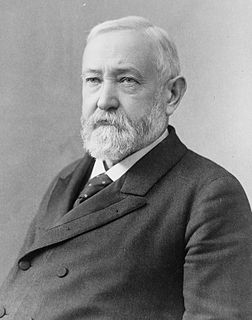A Quote by Benjamin Harrison
If the educated and influential classes in a community either practice or connive at the systematic violation of laws that seem to them to cross their convenience, what can they expect when the lesson that convenience or a supposed class interest is a sufficient cause for lawlessness has been well learned by the ignorant classes?
Related Quotes
High fidelity is a rich experience, and you'll put up with terrible convenience to get it - maybe it's high cost, waiting in line, jumping through hoops. High convenience is the opposite - it's a commodity, but it's cheap and easy and ubiquitous. A great exclusive boutique shop is high fidelity; Wal-Mart is high convenience. Both are hard to establish in their own way. The thing to remember about sustaining either is that you can't sit still. Some other entity will always find a way to challenge your fidelity position or your convenience position.
In the middle of my second year at school, in 1943, I got drafted into the army, was gone for three years, and when I came back, I tried to get into the painting classes which I wanted, but because of all the returned GIs [the GI Bill], everyone was in school and the classes were all full. So I looked at the catalogue and found that there was a ceramic class offered and that there was space in that. I registered for a ceramic class and some drawing classes.
With regard to the learned professions, little need be observed; they truly form no distinct interest in society . . . [discussing the landed, merchant, and learned classes in legislative assembly]. Will not the man of the learned profession, who will feel a neutrality to the rivalships between the different branches of industry, be likely to prove an impartial arbiter between them, ready to promote either, so far as it shall appear to him conducive to the general interests of society?


































